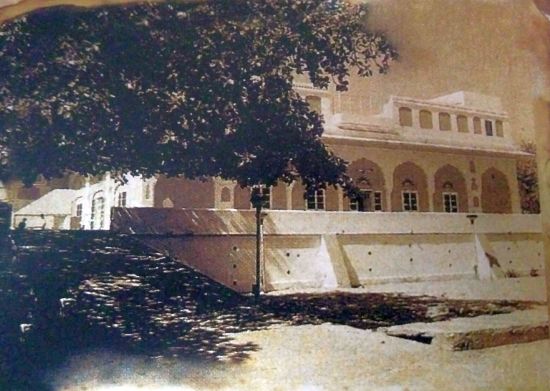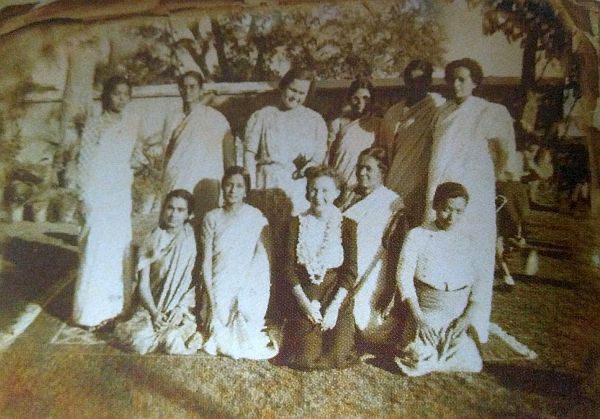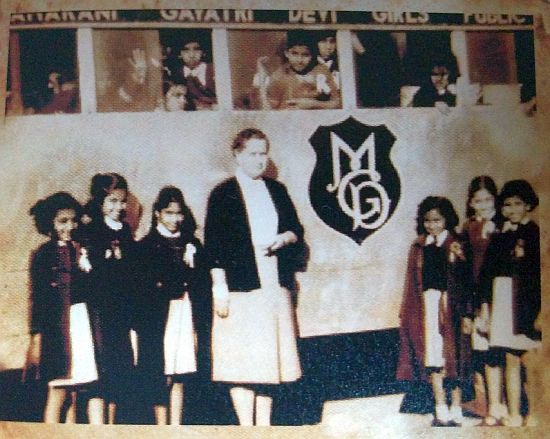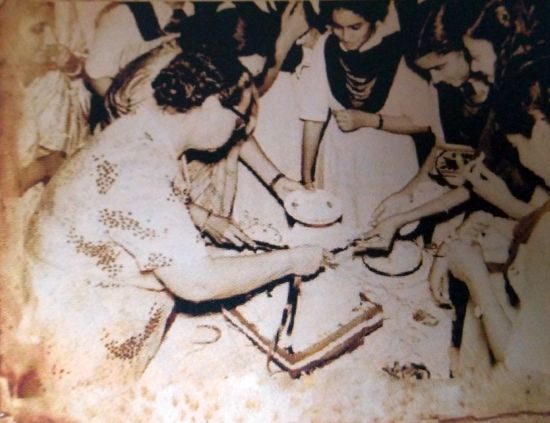Latest Contributions
Maharani Gayatri Devi Girls School – The Beginnings
Category:
Tags:

Born and brought up in Jaipur, Chandralekha Mathur received her education at Maharani Gayatri Devi Girls School, and Maharani's College, Jaipur. Married to a tea planter, she lived in the tea growing area of North East India. Reading and writing have all along been my hobbies. After three decades on the plantations, she relocated to Jaipur. Along with some social welfare activities has authored a book on her life in the North East. She has also been actively involved in the activities of the alumni association of MGD school, and has been the Editor of its newsletter 'Guild Today' for the last 15 years.
Editor's note: This memory was originally written for the coffee table book "70 Glorious Years - MGD Platinum Jubilee" published in 2013.
The Maharani Gayatri Devi Girls School, or MGD as it is usually called, was born on July 4, 1943, amidst the chanting of Sanskrit shlokas invoking the blessings of Lord Ganesha and Goddess Saraswati. It was a significant and auspicious event, and a royal gift from the Maharaja and Maharani of Jaipur to the daughters of the aristocratic families was unwrapped! It was temporarily housed in Madho Vilas, a garden retreat of the Jaipur rulers outside the walled city, with 24 girls of various ages on its rolls.
Being one of the 'First 24' has always been a matter of pride for those who were fortunate enough to enjoy that status.

Madho Villas - The first building where MGD Girls School was housed in 1943.

Teaching staff at Madho Villas, Jaipur. 1943
Standing - L to R: Ms. Jacob, Ms. H. Prabhu, Ms. L. G. Lutter, Ms. Rastogi, Ms. S. Khanna, Ms. I Malvea.
Front Row - L to R: Ms. K Minakshi, ?, ?, ?, Ms. Emma Hilne
Memories of the first day have blurred with the passage of time. The observance of purdah (a custom in which women did not show their face to men) did not allow the presence of photographers to record the momentous occasion. We were a group of bewildered girls reserved sad overawed by what was unfolding. We had only one thing in common - none of us had been to a school before. There are hazy recollections of being given batashas tied in pink handkerchiefs edged with golden border in the huge hall with intricately carved columns and arches. From the next day, the school bus arrived at the gate. It was heavily curtained and a maid stepped out, waited for a minute or so and then called out "balsa padharo", (baisa means daughter of the house, padharo means please come). A teacher also came out to escort each girl into the waiting bus. It was a long drive to Madho Vilas. The curtains were fastened to the windows and it was rather hot and uncomfortable. There was a curtain between the driver's cabin and the rest of the bus where the girls, teacher and the maid sat.

Bus with curtains to maintain purdah at MGD. Jaipur. 1948 or 1949

School birthday, MGD, Jaipur 1950.
Gradually we got used to seeing each other and became familiar with things we saw in school - the colourful, alphabet charts in English and Hindi, charts with pictures of animals, flowers, fruits and vegetables and blackboards propped up on stands. One day, we were called one by one to be measured for the school uniform - Mrs Patni and Miss Rastogi took the measurements and called out the inches. This was repeated by a male voice on the other side of a thick curtain. That was the tailor noting it all down! The senior girls were to wear blue sarees with maroon pallu and border and blue blouses. The junior's uniform was maroon pleated skirt with buttoned down straps, blue blouses, white socks, black buckled shoes and maroon ribbons. Maroon, blue and white were our colours. While our uniforms were being stitched we learnt the alphabet and numbers, were taught to say ‘good morning', ‘thank you', ‘please', and to sing simple nursery rhymes, and recite prayers in English and Hindi.
The older girls had probably learnt these from private tutors and governesses, they were taught needlework, art (drawing and painting) along with reading and writing.
The high point of our day was the recess after lunch. Here we, specially the younger ones, ran up and down the long corridors of Madho Villas. The corridors had intricately carved corners and jhrokas (lattice work balconies) ideal for playing hide and seek. Through the intricately carved jaali (stone work), we used to gaze at the majestic Nahargarh Fort. It looked massive from close\; from where we lived it had always looked like a far-off fairytale castle atop the distance hills. One day, one of the senior girls told us a story of the corner and niches we used to hide in being haunted by ghosts of long dead Kings and Queens. This frightened us so much we never dared to hide in them again!
One major event stands out in the hazy recollection of our days in Madho Villas. We were invited to the Ladies Club in a fancy dress competition. Miss Lutter or Miss Emma clicked the first group photograph with her box camera. This was a landmark occasion, as Her Highness desired that MGDians should gradually be woven into the life around them, of course within the parameters of purdah. This was the first exposure of MGDians outside the school premises.
Life at Madho Villas was one long picnic, which lasted the whole year. But Madho Vilas was a stopgap venue. A ‘new building' was coming up on Sawai Ram Singh road, also called Rambagh road opposite Ram Niwas Garden. The new building was built in record time. The new term after the summer break was held in the new building. By the end of 1943 we had grown to 39 girls.
____________________________________________________
© Chandralekha Mathur 2019
Editor's note: I approve all comments written by people\; the comments must be related to the story. The purpose of the approval process is to prevent unwanted comments, inserted by software robots, which have nothing to do with the story.
Comments
Add new comment